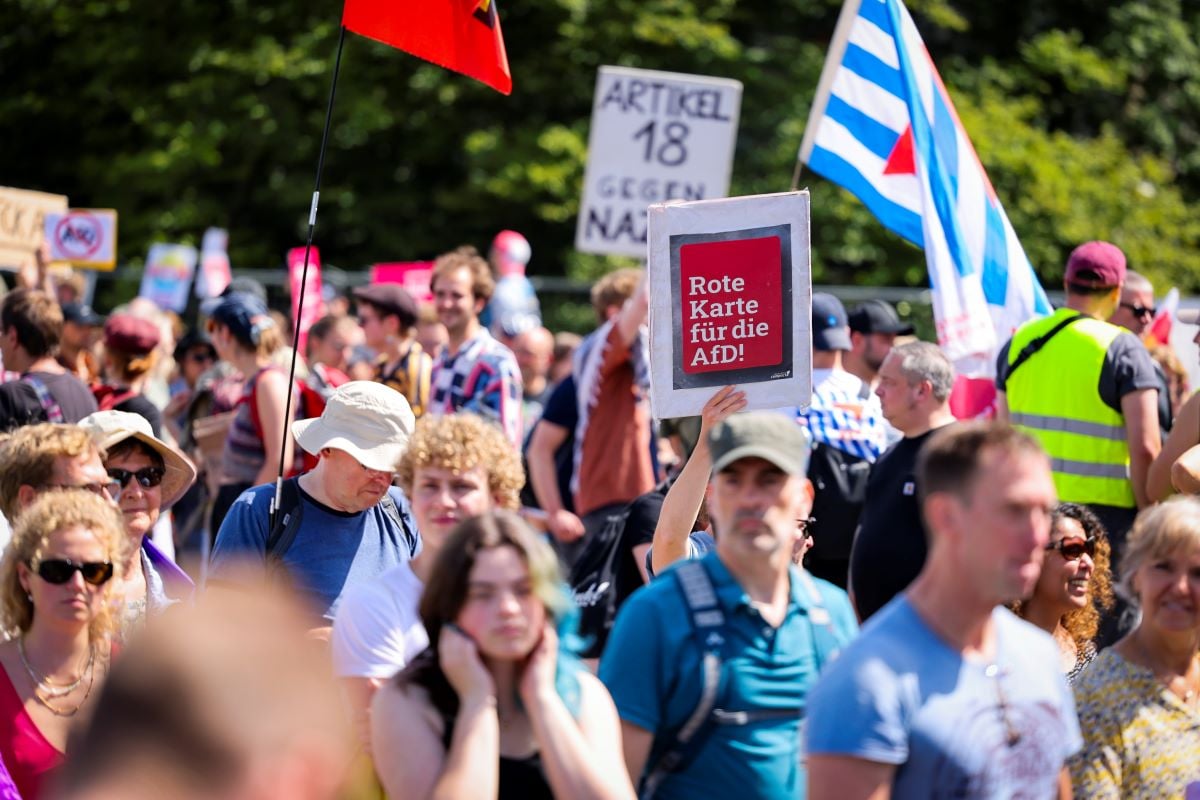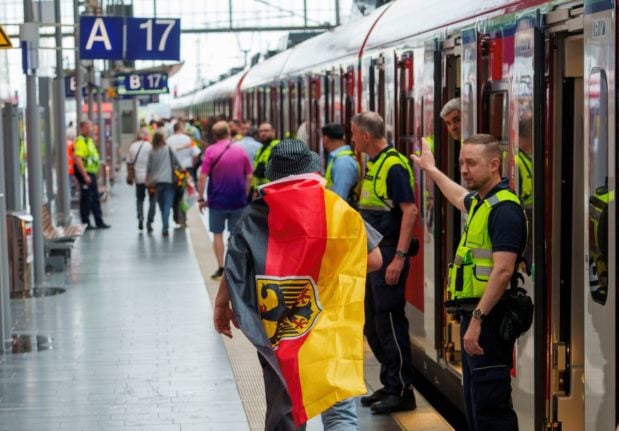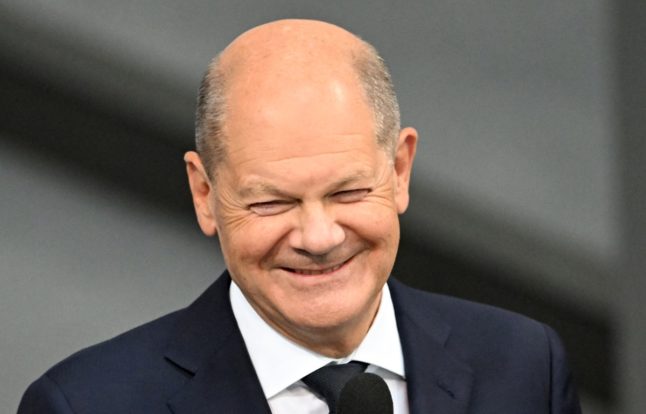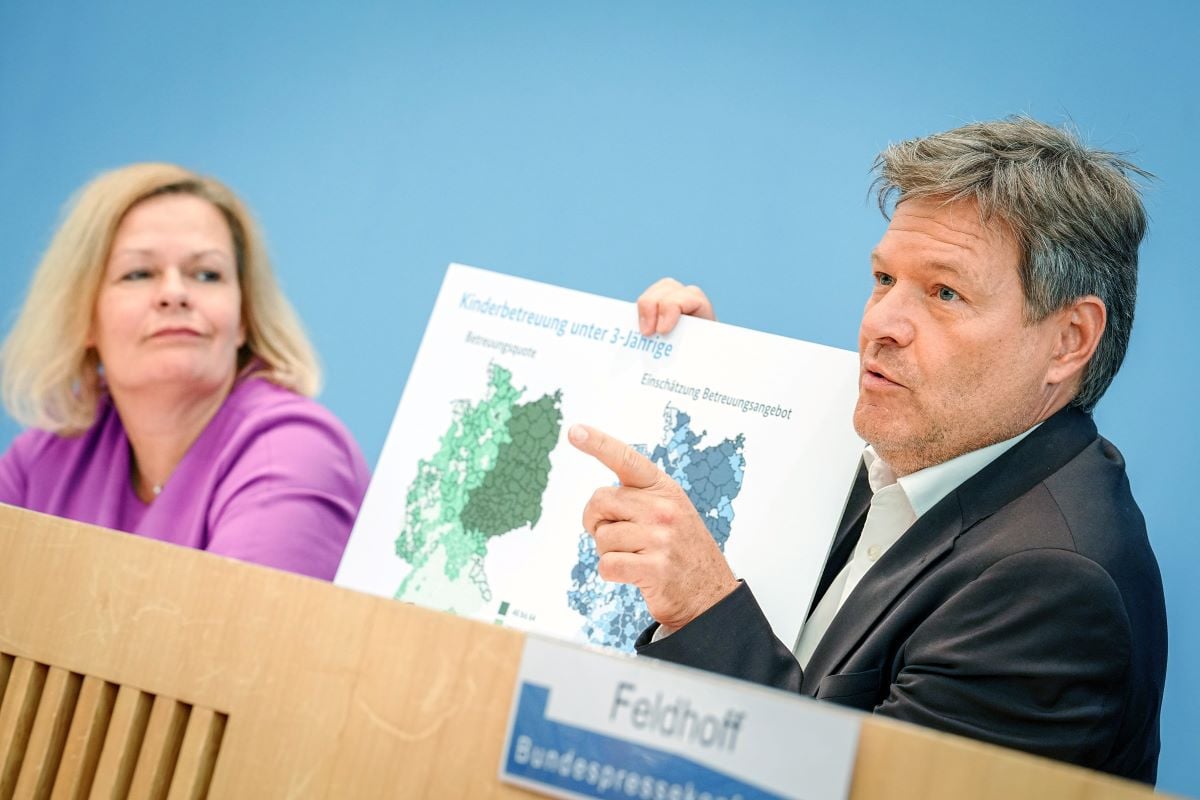Deutsche Bahn CEO denies reports of cuts to long-distance rail services
The head of German rail operator Deutsche Bahn (DB) says there are no planned cuts to long-distance rail services, following reports of route cancellations.
Group CEO Richard Lutz said in a letter to the SPD parliamentary group: “Our plans for the 2025 timetable, which were finalised in April, do not envisage any cuts.
The letter, which was sent in response to German media reports on cuts, was seen by news agency DPA.
“We want to run the full timetable in 2025,” a DB spokesperson confirmed on Monday.
In the letter, Lutz shows understanding for the uncertainty felt by MPs following last week’s media reports.
“Contrary to the claims in Der Spiegel, we currently have no plans or decisions to cancel the long-distance connections mentioned,” said Lutz.
This comes as Deutsche Bahn faces a growing number of complaints that problems on the network are affecting Euro 2024. German long-distance trains faced a record number of weather-related delays in June, the railway operator said on Monday.
The Bild daily reported that just 52.5 percent of German long-distance trains arrived on time in June. It compares to a figure of 68 percent in March and 63 percent in January.
“On average, more than 400 long-distance trains per day were affected by external factors such as landslides, flooding and dam damage.” This was 100 percent higher than the usual figure, said a DB spokesperson.
Deutsche Bahn defines a train as being late if it arrives six minutes or more past its scheduled arrival time.
Far-right German politician fined over Nazi slogan, again
German far-right politician Björn Höcke was fined €16,900 Monday for using a banned Nazi slogan, his second conviction for the offence.
Höcke, the leader of the far-right Alternative for Germany (AfD) in the eastern region of Thuringia, was fined by judges in the city of Halle for knowingly using the phrase “Alles fuer Deutschland” (Everything for Germany) at a party gathering in December 2023.
At the event in the city of Gera in Thuringia, Höcke, 52, had called out the phrase “everything for” and incited the crowd to reply: “Germany”.
A motto of the Sturmabteilung paramilitary group that played a key role in Adolf Hitler’s rise to power, the phrase is illegal in Germany, along with the Nazi salute and other slogans and symbols from that era.
READ ALSO: FACT CHECK -Are people punished for using Nazi slogans in Germany?
In May the same court had already fined Höcke €13,000 for using the same phrase at a 2021 campaign rally.
Considered an extremist by German intelligence services, Höcke has long courted controversy. He once called Berlin’s Holocaust monument a “memorial of shame” and has urged a “180-degree shift” in the country’s culture of remembrance.

Höcke was notably not a big presence at the AfD party convention that took place in Essen over the weekend, which sparked mass protests.
READ ALSO: ‘We want to govern’ – Could the far-right AfD join a coalition in Germany?
Also on Monday, a court in the southern state of Bavaria ruled that it was legal for local intelligence services to put the AfD under observation.
Berlin and Warsaw leaders meet for intergovernmental reconciliation
Chancellor Olaf Scholz (SPD) travelled to Warsaw late on Monday evening with 12 of his federal and state ministers to give a new boost to relations with the neighbouring country.
The first German-Polish government consultations in almost six years took place there on Tuesday morning.
Led by Scholz and Poland’s Prime Minister Donald Tusk, the consultations focsed on an action plan that will include compensation payments for Polish victims of the occupation by Nazi Germany who are still alive, and German aid for the defence of NATO’s eastern flank.
According to a report in the Süddeutsche Zeitung, the financial aid together could be in the three-digit million range.
Compensation payments are a sensitive issue for Germany, because it could open the door to claims from other countries. Almost 80 years after the end of the Second World War, there are still demands from Greece for compensation for the war damage caused by Nazi Germany.
Around 40,000 people still live in Poland today who were once victims of the German occupiers, according to Agnieszka Lada-Konefal of the German Poland Institute in Darmstadt.
READ ALSO: WWII wounds remain as Poland seeks German reparations 80 years on
Poland’s right-wing Law and Justice (PiS) party reopened discussions on reparations as early as 2017.
Foreign Minister says ‘nobody can be indifferent’ to France far-right win
Germany’s Foreign Minister Annalena Baerbock said Monday the far-right National Rally’s electoral success in the first round of legislative elections was a cause for concern.
“Nobody can be indifferent when… in our closest partner and friend, a party that sees Europe as the problem and not the solution is far ahead (in the polls),” Baerbock told journalists in Berlin.
Baerbock’s reaction comes in response to the results of France’s first snap election, which saw the far-right Rassemblement National (RN) party well in the lead with 33.4 percent of the votes.
READ ALSO: French elections – What happens next as far-right lead in round one?
The snap election was called by French President Macron after European election results showed a strong lead by the far-right party. Critics accused Macron of gambling with the French Parliament – an accusation that holds weight in light of the the first round of results.
Respiratory disease infections on the rise again in Germany
Germany’s agency for disease control, the Robert Koch Institute (RKI), has reported a sharp increase in the incidences of respiratory diseases and flu, including Covid 19, this summer.
Last week, the number of infections diagnosed in the laboratory and reported to health authorities in Berlin doubled compared to the previous week, the RKI told regional newspaper, the Tagesspiegel.
According to the report, incidences of respiratory diseases and flu in Germany are “currently at a comparatively high level for this time of year”. But severe cases remain rare.
Rhinoviruses and enteroviruses, which cause fever, headache and sore throat, have been detected at high levels in wastewater analyses. Human metapneumoviruses with flu-like symptoms and Covid 19 are also circulating.
The institute has the following advice: “Anyone who has symptoms of an acute respiratory infection should stay at home for three to five days and until the symptoms have improved significantly.”
With reporting by DPA, Paul Krantz and Rachel Loxton.




 Please whitelist us to continue reading.
Please whitelist us to continue reading.
Member comments